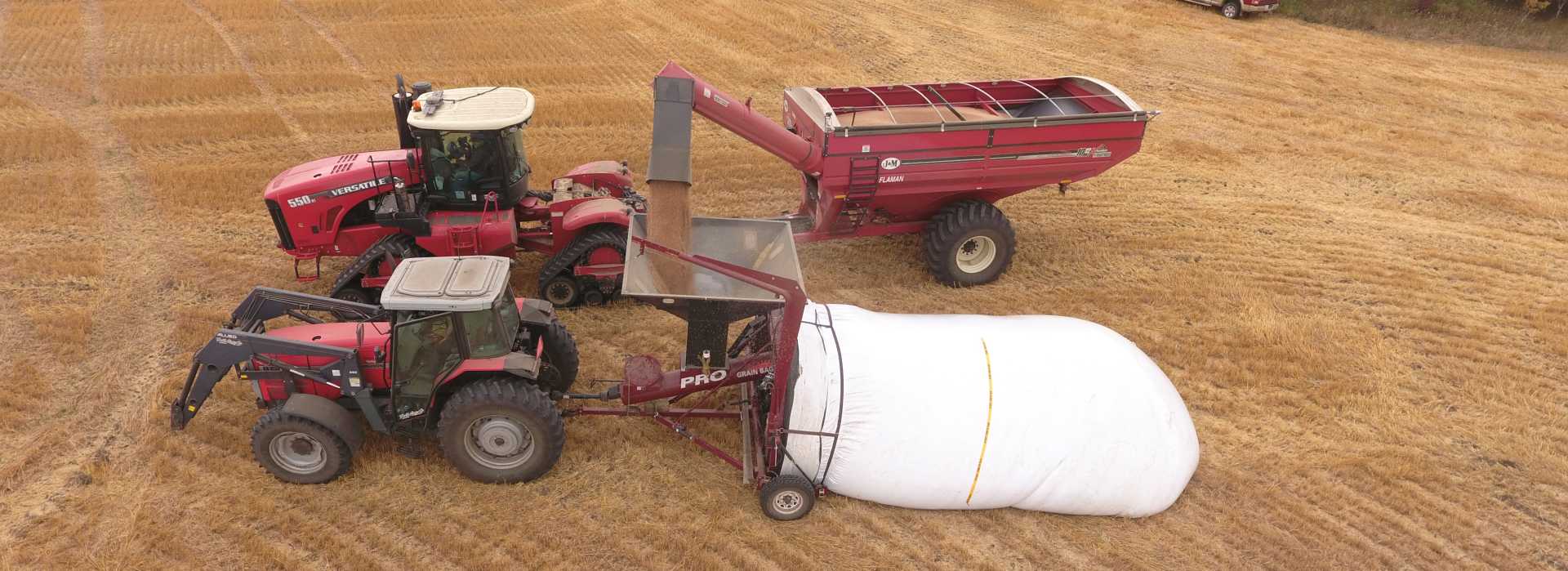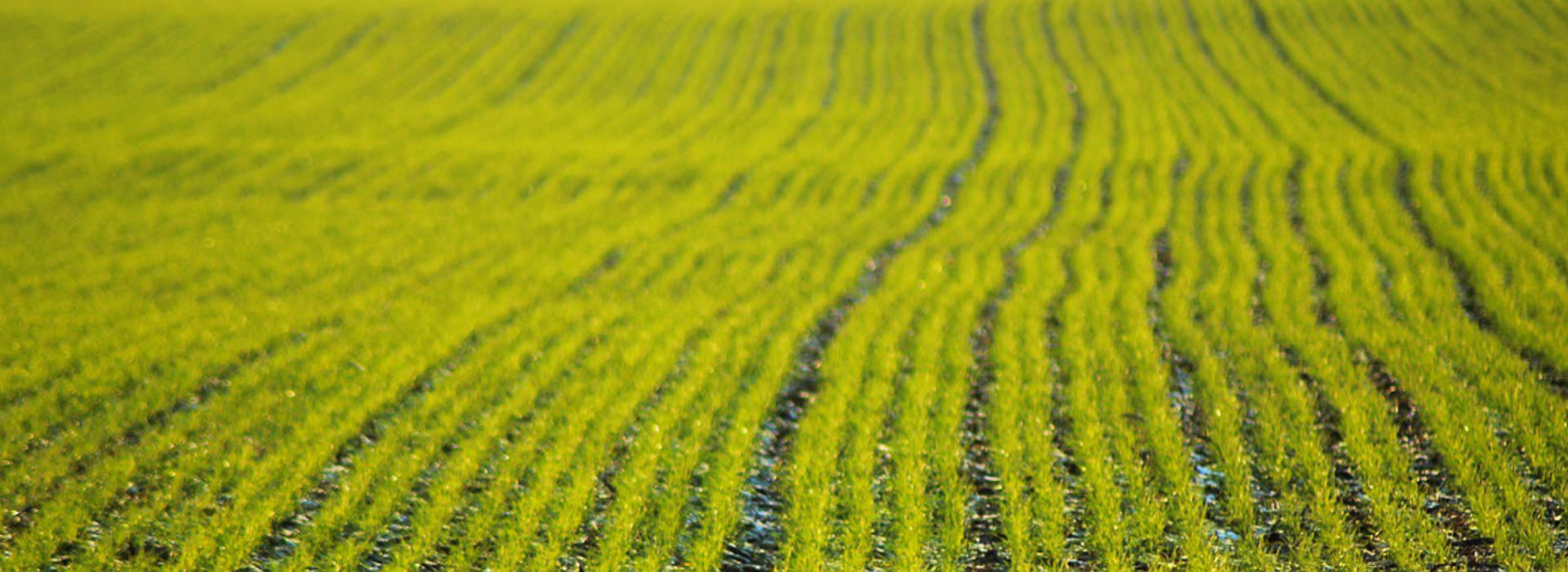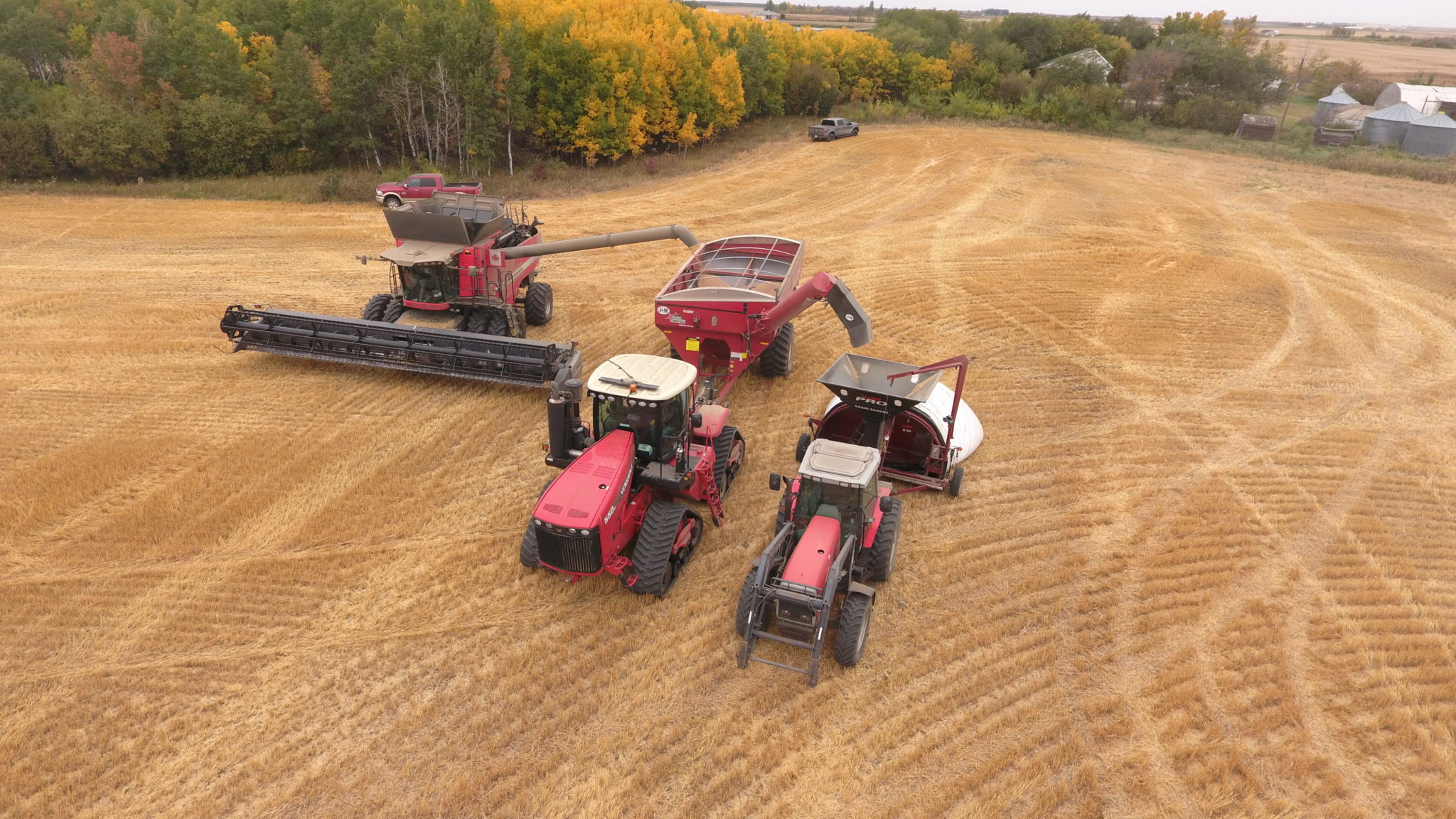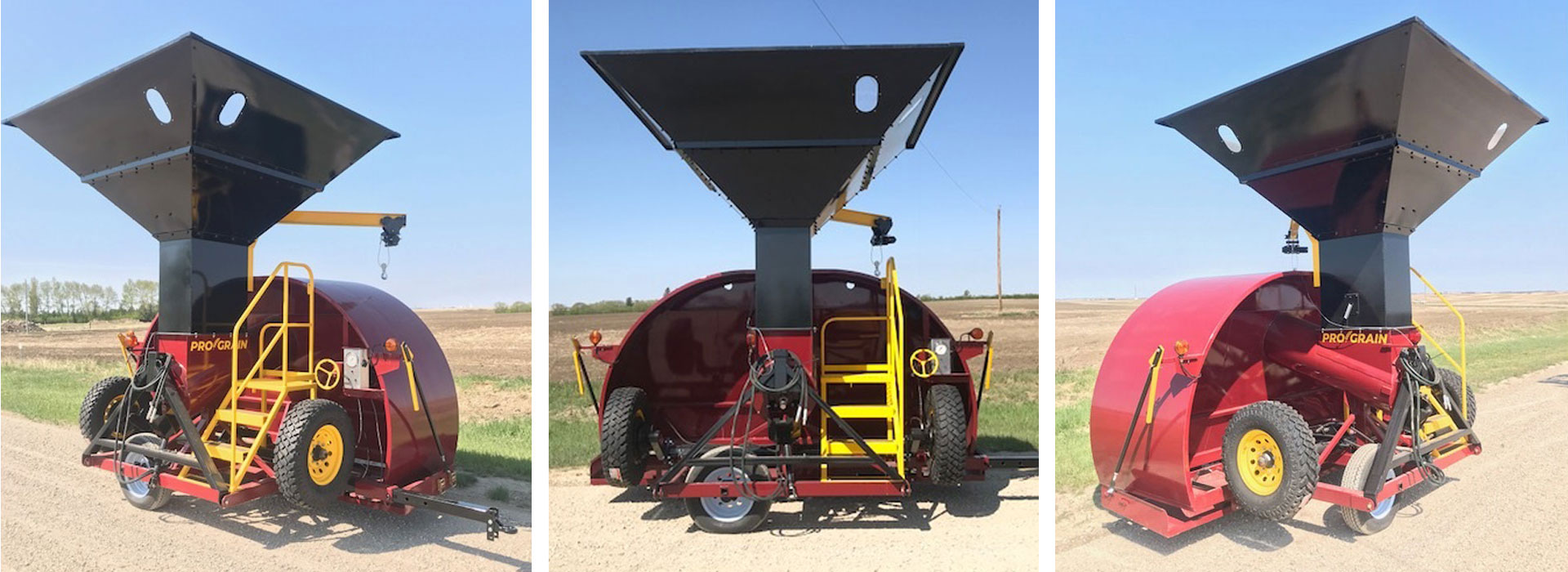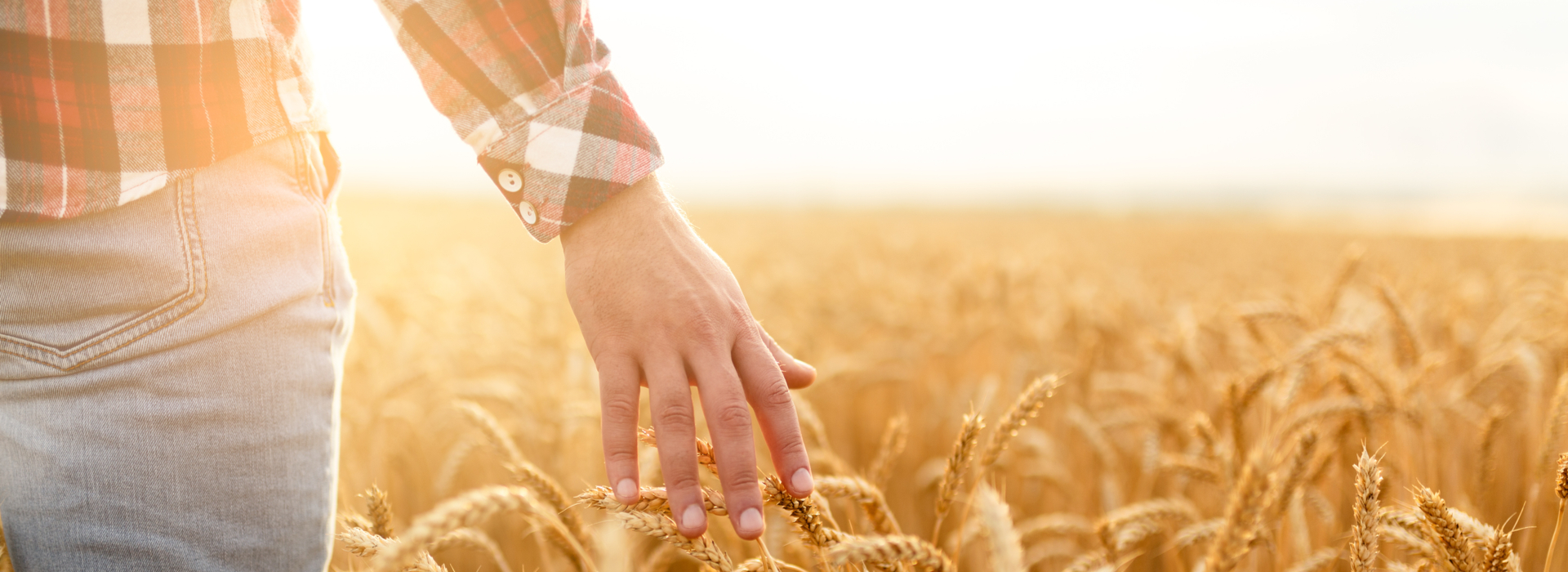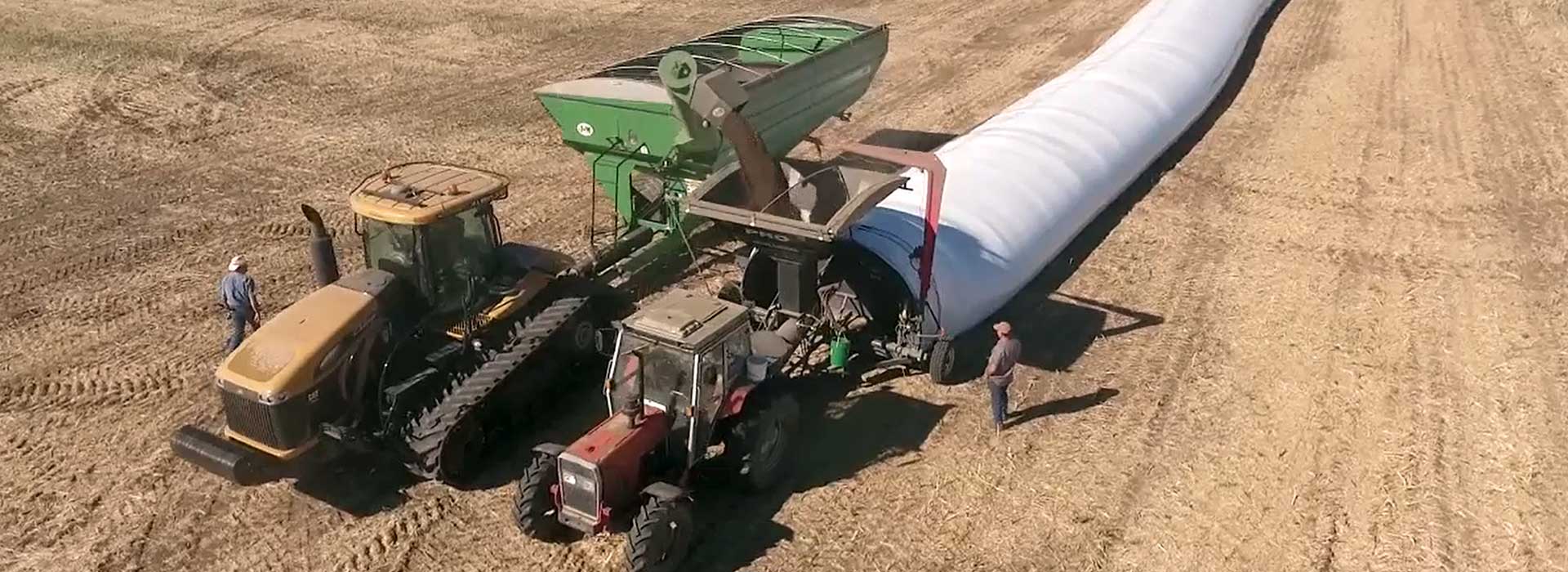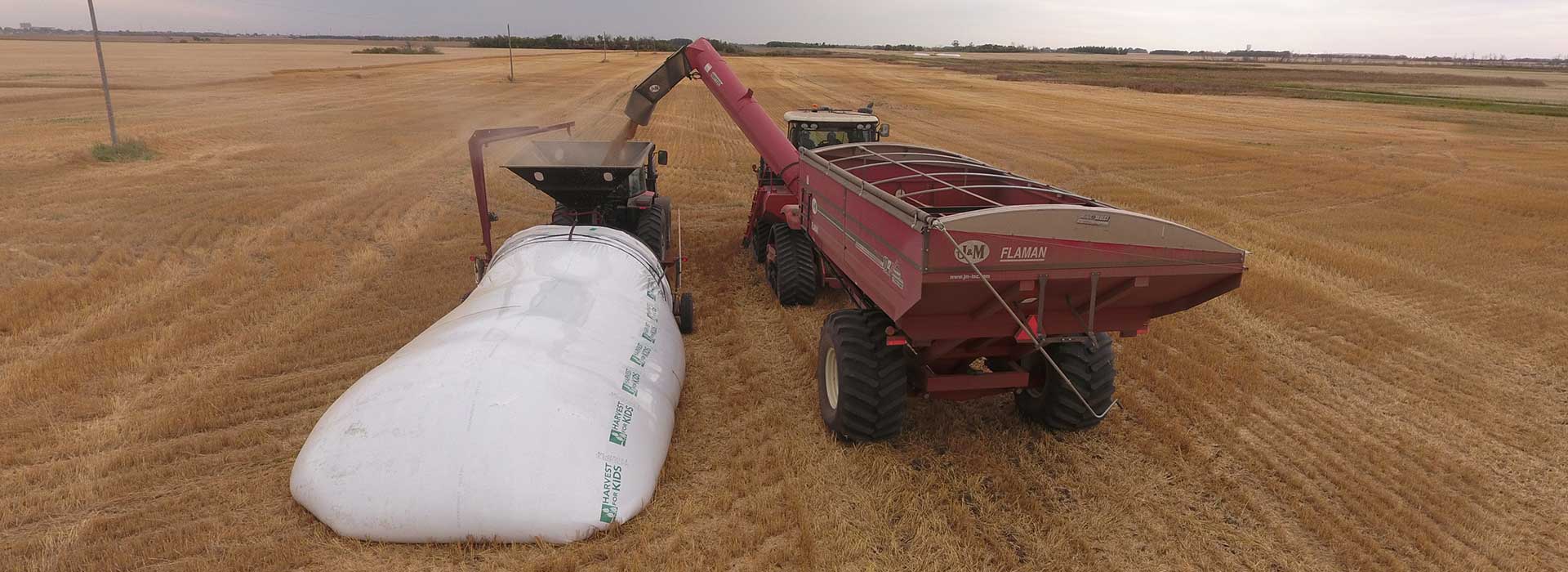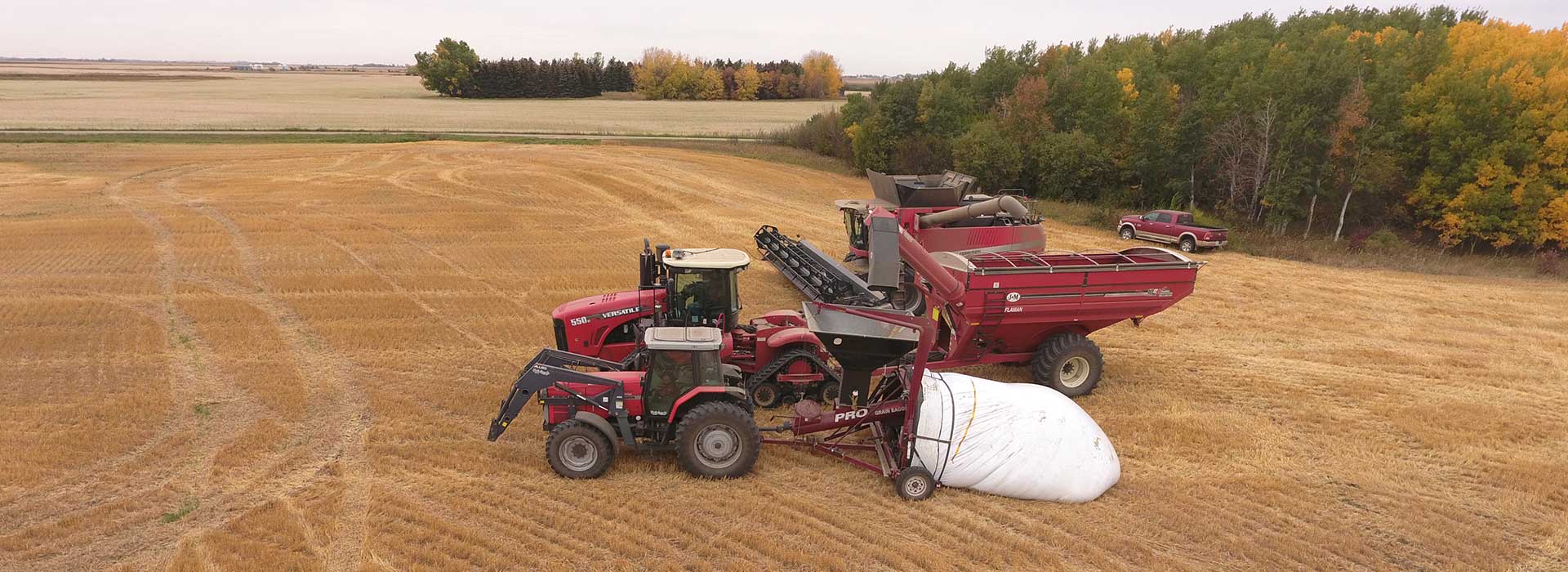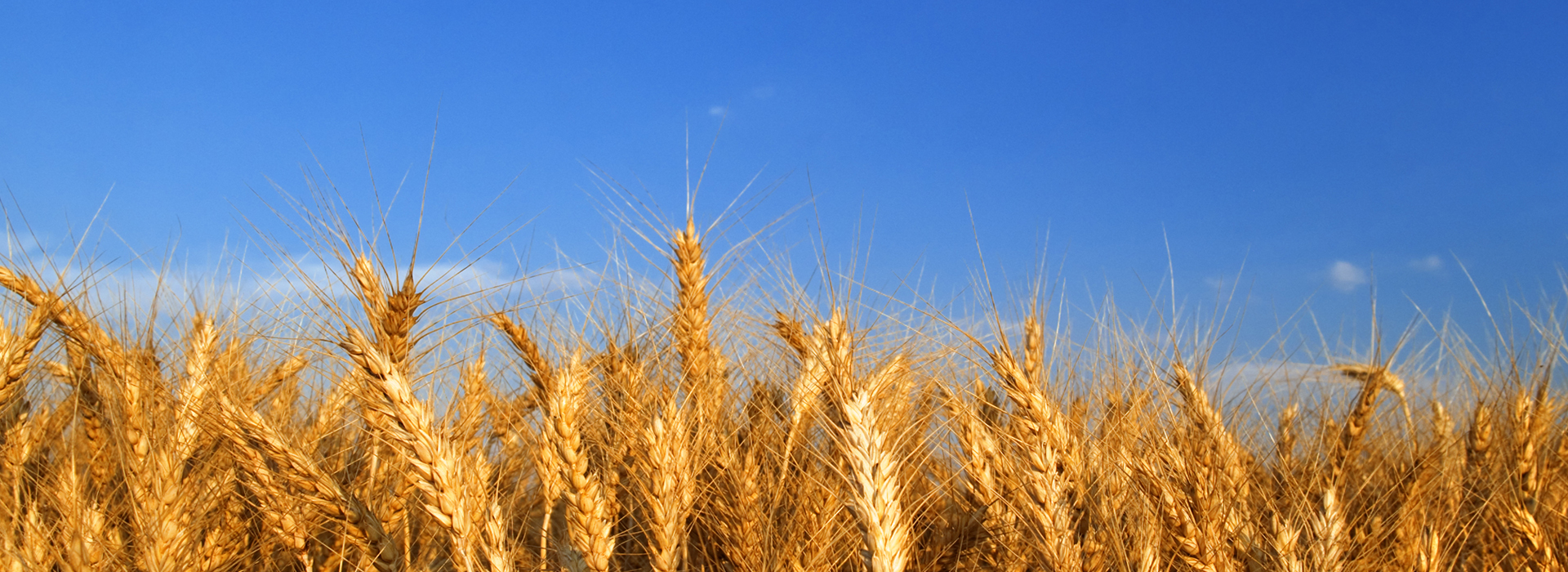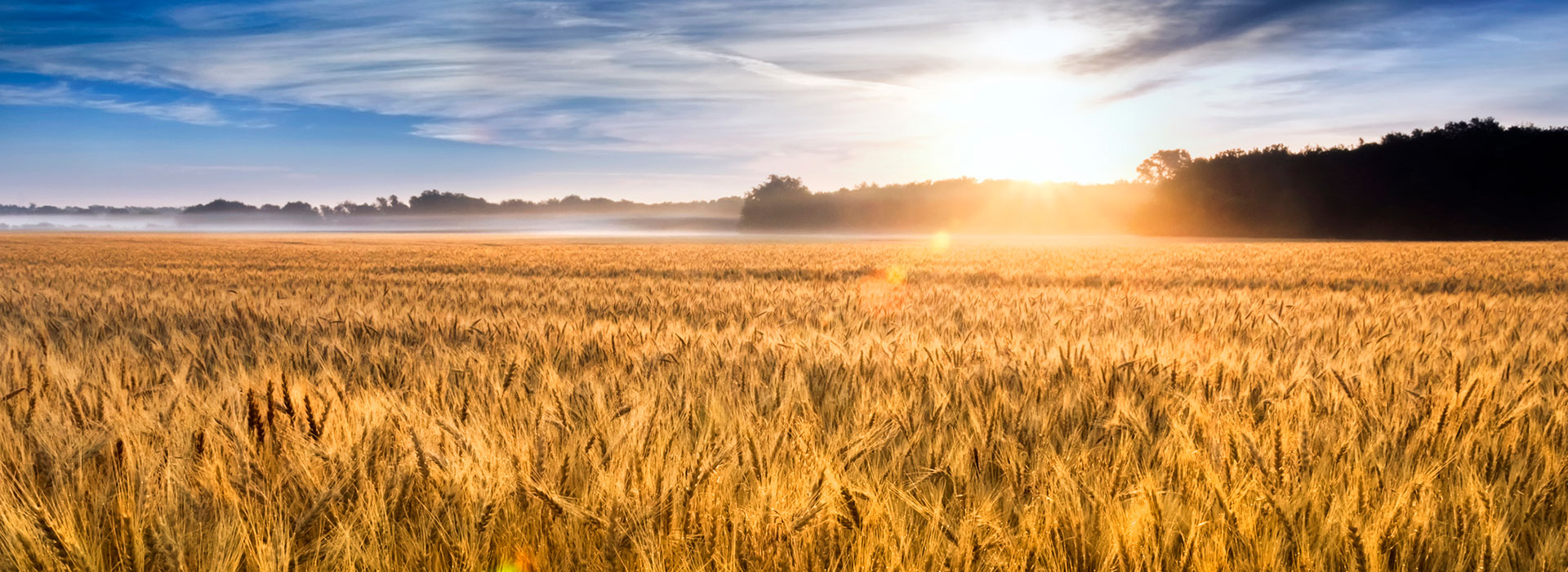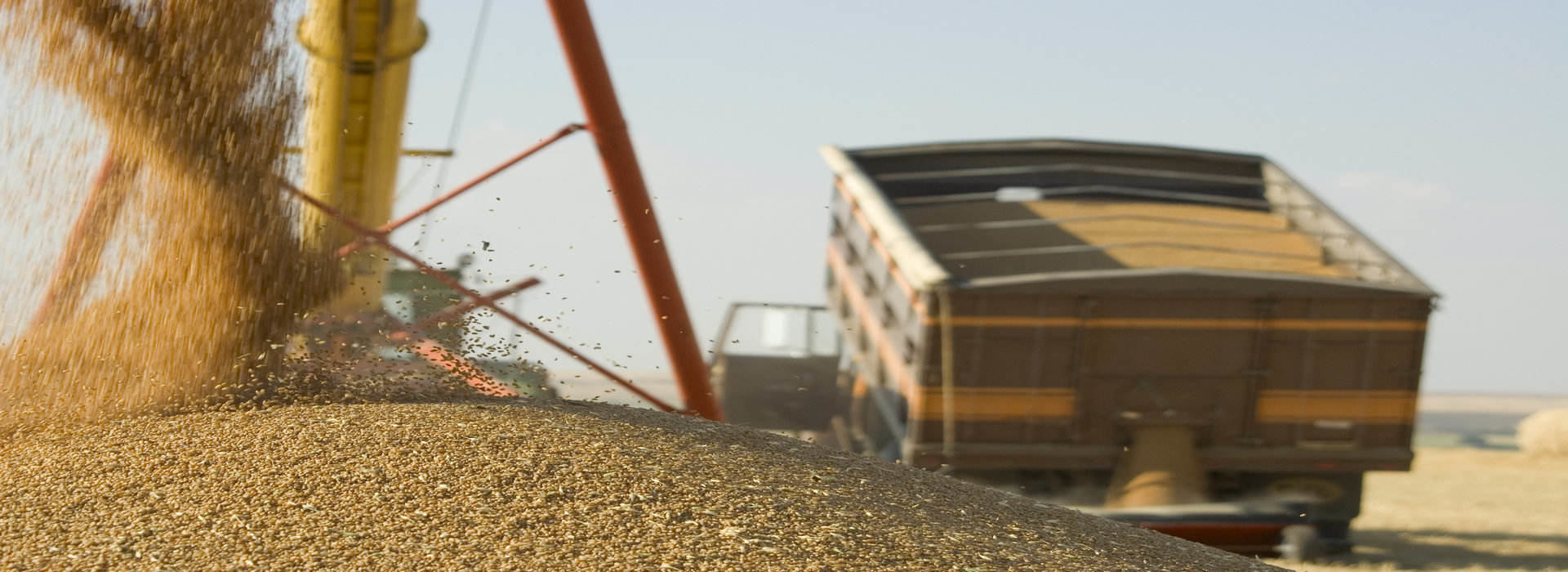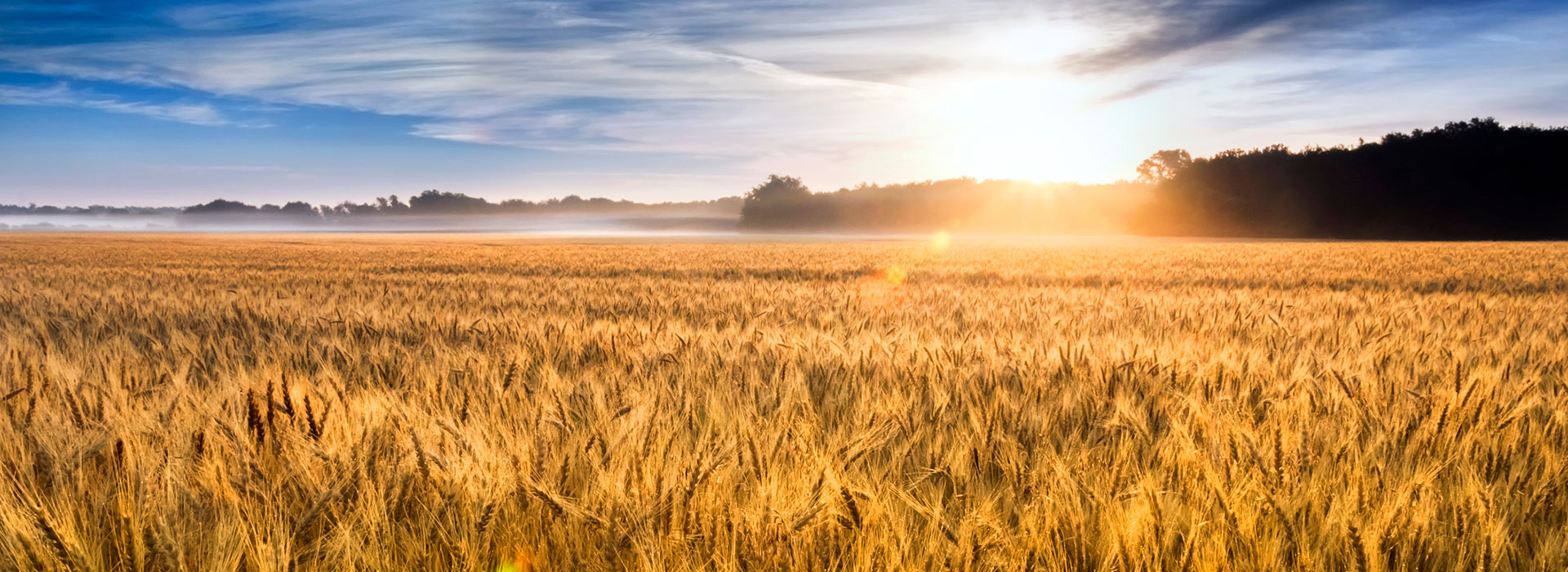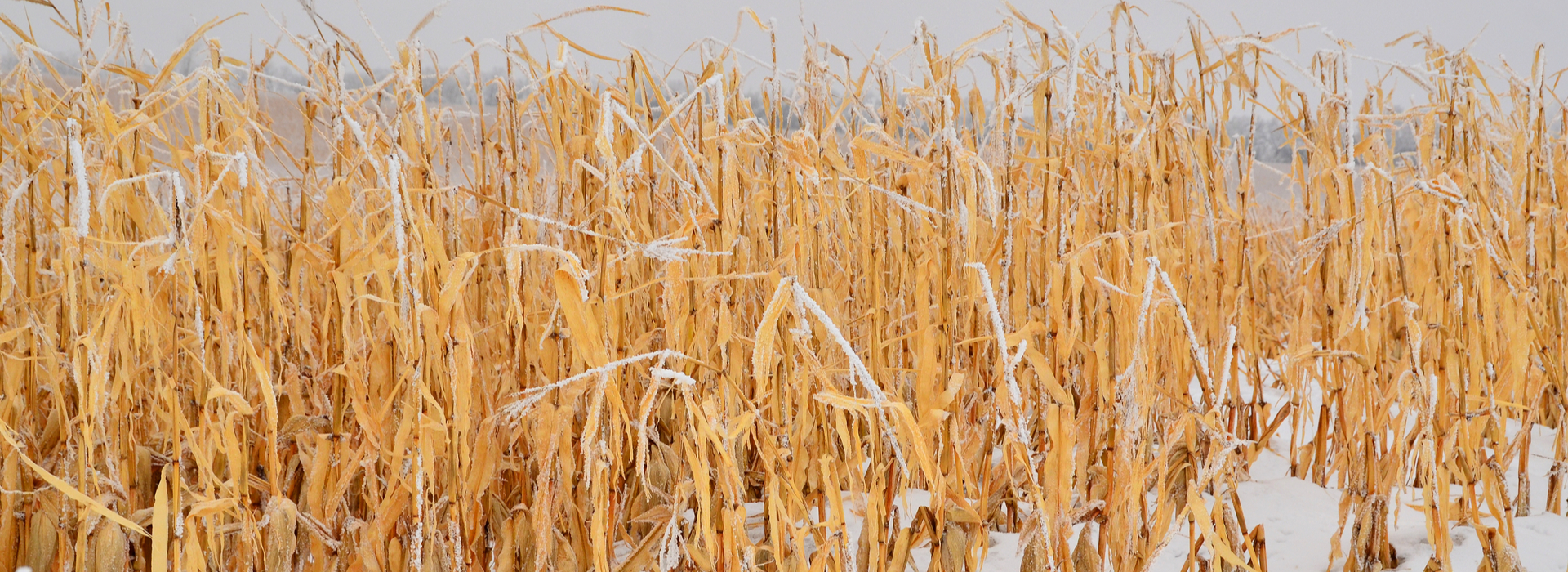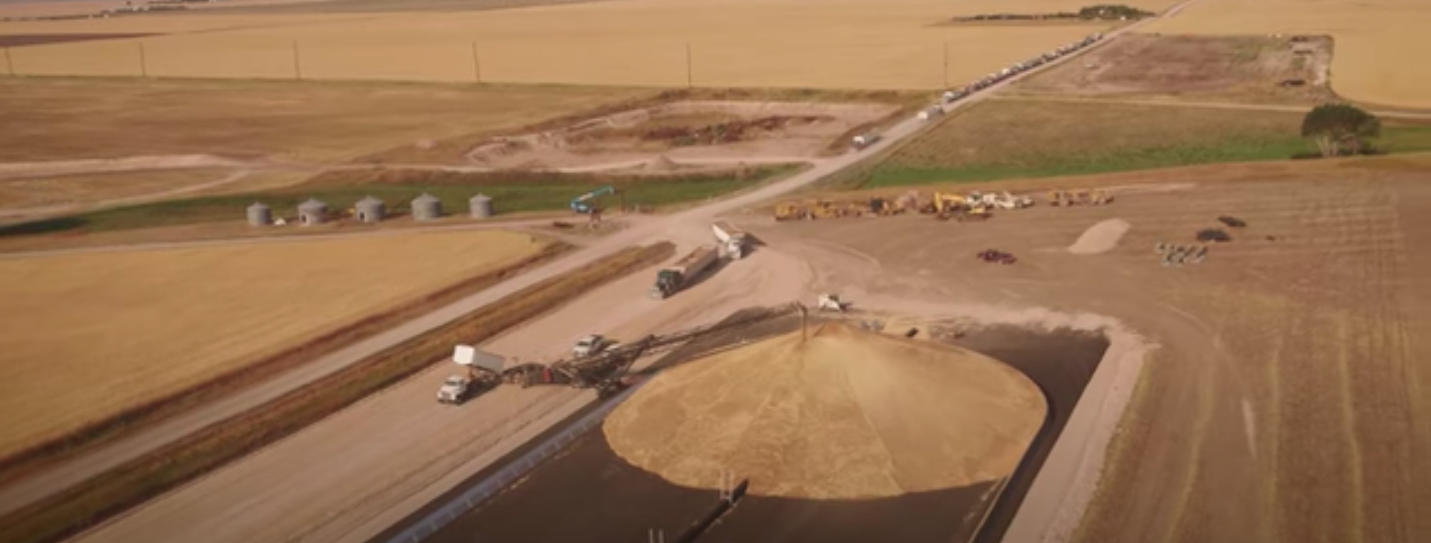
Your Grain Transportation Back-Up Plan
Article published on: Apr 17
COVID-19 is presenting challenges for farmers, which is where grain bagging comes in.
It’s a new year and a new growing season, which — inevitably — means that it’s also time for new roadblocks. This year, COVID-19 is affecting each one of us on personal and business levels. However, when it comes to farming, there’s always a constant: the crops will still happen. With the issue of coronavirus heavy on our backs and the backs of our harvests, we may be looking at another year of back-logged storage issues and a year of brand-new, coronavirus-inspired problems.
The last year has been an example of one thing after the other affecting and disrupting the harvest season. An article in The Producer brought up the myriad of issues facing last year’s farmers, from late harvest to a dysfunctional supply chain to railway car disruptions. According to The Producer, Canadian Special Crops Association president Quinton Stewart said that “these disruptions have not only cost our sector tens of millions of dollars, but they have also badly damaged our international reputation.”
In a field that is completely contingent on storing and managing your crop, the unknown that comes alongside COVID-19 can seem particularly scary and contingency plans are important. By grain bagging, you’ll be making the right decision for your business and your employees.
Why grain bagging should be in your wheelhouse
At a time, almost certain to be rough for everyone, COVID-19’s disruption highlights the importance of having a flexible storage option like grain bagging. It’s vital to your business that you’re able to roll with the punches, and here’s how grain bagging helps with that:
- Flexible storage option. If the flow of commodity transportation is disrupted, backups cause storage problems. Grain bagging allows for flexible, cost-effective, unlimited storage without the worry of broken supply chains.
- Reduce labour costs. If temporary or seasonal labour is less readily available for the farming year, the addition of grain bagging can dramatically reduce in-field or trucking labour needed.
- Beat the weather. With grain bagging, you’re ready to strategize around a wet harvest, early winter, or any inclement weather that holds up harvest, since your grain can be bagged right on the field.
- Greater marketing profitability. Grain can be stored in bags until the base prices improve, or until alternate contracting can be sourced to control and plan the right time to market the crop for top dollar.
- Harvest more. You’ll be able to take advantage of being able to harvest more acres and reduce overall costs.
Regardless of your plans or your goals for 2020, COVID-19 will make an impact on you in some form. By utilizing grain bags for your grain storage needs, you’ll be able to work faster, smarter and safer in the fields.
Happy harvesting!


